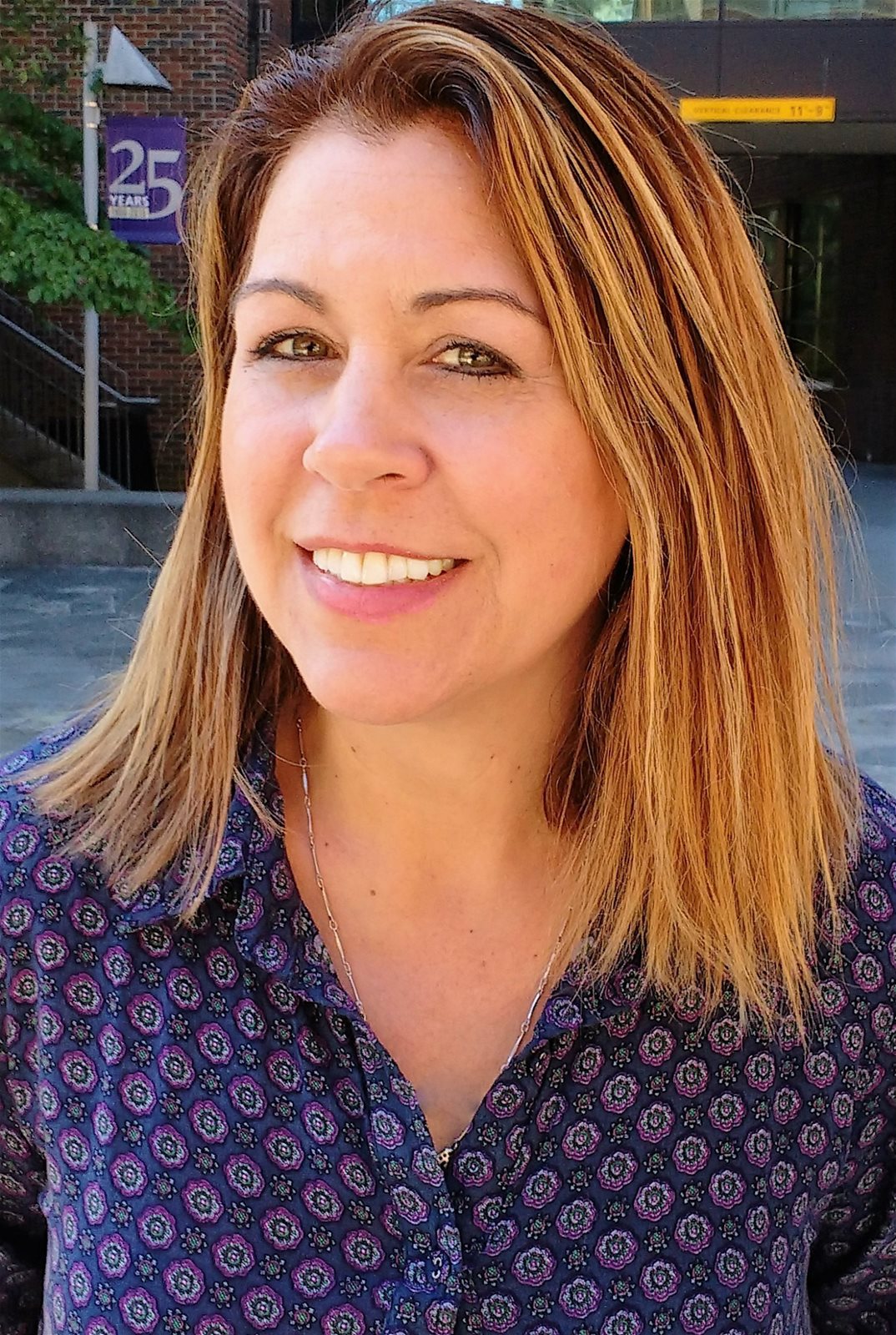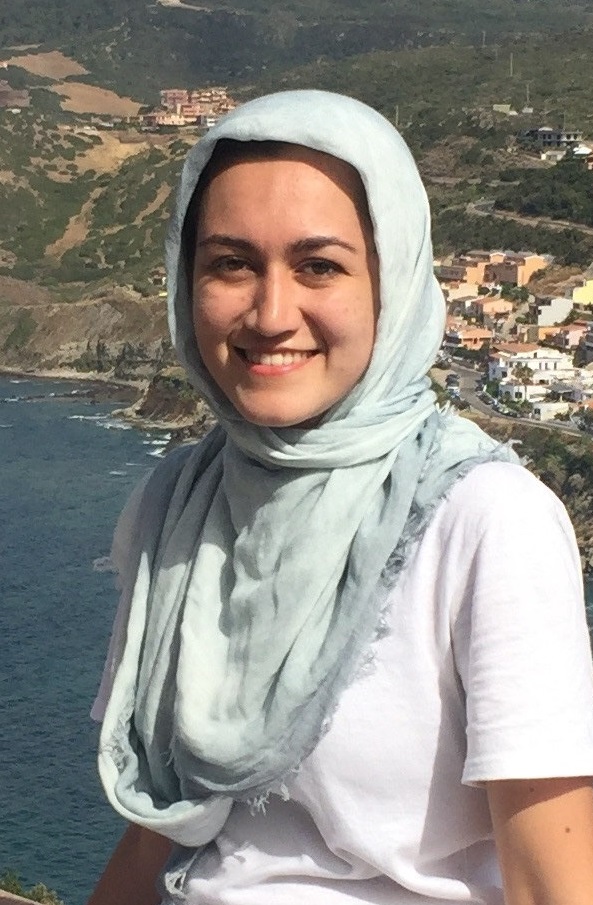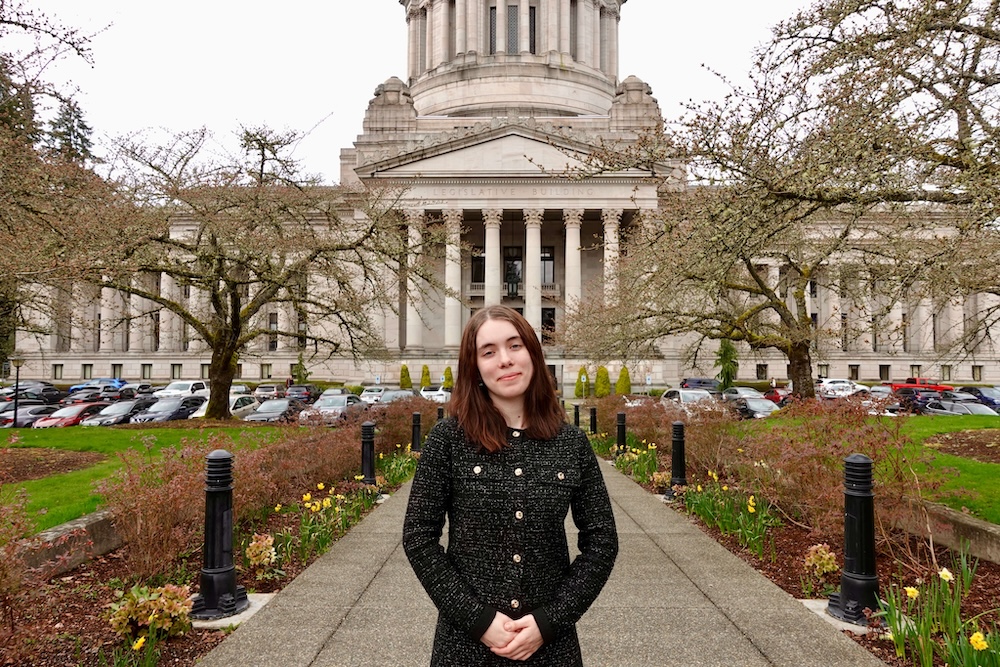UW students listening to stories from their program collaborators at a refugee and migrant center in Castlesardo, Sardinia.

By Douglas Esser
Study abroad students from the University of Washington Bothell flew into the headlines of a global story when they visited Sardinia as the Italian island in the Mediterranean dealt with newly arrived migrants seeking asylum.
“It was a powerful experience,” said Jody Early, right, an associate professor in the School of Nursing and Health Studies. She co-led the trip to the city of Alghero on Sardinia’s northwest coast with Erin Clowes of the Comparative History of Ideas Department on the Seattle campus. It was managed by the UW Study Abroad Office.

In four weeks over the summer, students conducted emotional interviews with migrants who risked a dangerous passage hoping for refuge in Europe, now stuck in limbo waiting for documents. And, they heard from people with limited resources helping the migrants. The exercise was community engagement on a global level using disciplines such as public health, public policy and art.
“It was connecting as human beings through music, food, art and stories,” Early says.
The trip occurred during some dramatic headlines from other parts of the world: Brexit, Black Lives Matter demonstrations, the shooting of Dallas police officers and the terror attack in Nice, France. More-visible hatred in the United States paralleled a rise in fascism in Europe, Early says.
“We talked to students in the pre-departure seminar about the fact that we would leave and things would not be resolved,” Early says. “We were privileged to be invited to explore these issues and all of their complexities with our collaborators in Italy.”
Learning from and with their partners, Early says, “It was a truly transformative experience.”

With plenty of sunshine, water and historic fortifications, Alghero has long been a resort city. Now, many of its visitors arrive by raft from North Africa – not on vacation. Ironically, the Vel Mari center for asylum seekers where the students worked was once a tourist hotel.
Students prepared for the July 9-Aug. 6 trip during the 10-week spring term with readings and discussions of their own identities and migration stories. Once in Sardinia, in addition to new perspectives on migrations, health, urban affairs and social justice, “they also learned a lot about themselves,” says Early.
“I don’t think I can forget some of the stories some of the immigrants shared with us about their migration experience,” said Feruza Ghias, left, who is working to graduate next spring with dual degrees in community psychology and in society, ethics and human behavior.

Ghias previously made a study abroad trip to Kyrgyzstan.
“Working with people of different backgrounds and walks of life has opened my eyes to unique experiences we usually don’t get inside our college classrooms,” she said.
Markus Smith said visiting refugee centers and learning about the migrant crisis in Europe changed his outlook and approach.

“Making connections with the residents of the camps reaffirmed my belief that we all have the same needs and wants and the only thing that separates us is our geographic location,” said Smith, right in hat, who is working to graduate in the spring with a double major in media communications and community psychology.
“This has taught me understanding and the ability to communicate cross-culturally, which will definitely benefit me in the workforce and here at UW Bothell because we are so diverse,” said Smith.
Smith and Ghias were among seven UW Bothell students on the trip – four from the School of Nursing and Health Studies and three from the School of Interdisciplinary Arts & Sciences – along with 15 from the Seattle campus. They were selected from nearly 70 applicants, Early says. The study abroad was partially funded through a UW Global Innovations grant.

Partners in the program included the University of Rome Tre and the University of Sassari in Alghero, plus about 15 nonprofits, including Global Outreach Doctors.
“A recurrent theme in the students' reflections was how motivated they were to take what they learned and use it for good,” says Early, “whether that means to get more involved with organizations supporting refugee rights and migration, to practice more competently and compassionately in their chosen professions or to simply listen more and to judge less.”
Local organizations that assist refugees and their families:
Northwest Refugee and Immigrant Services
Refugee Women's Alliance



